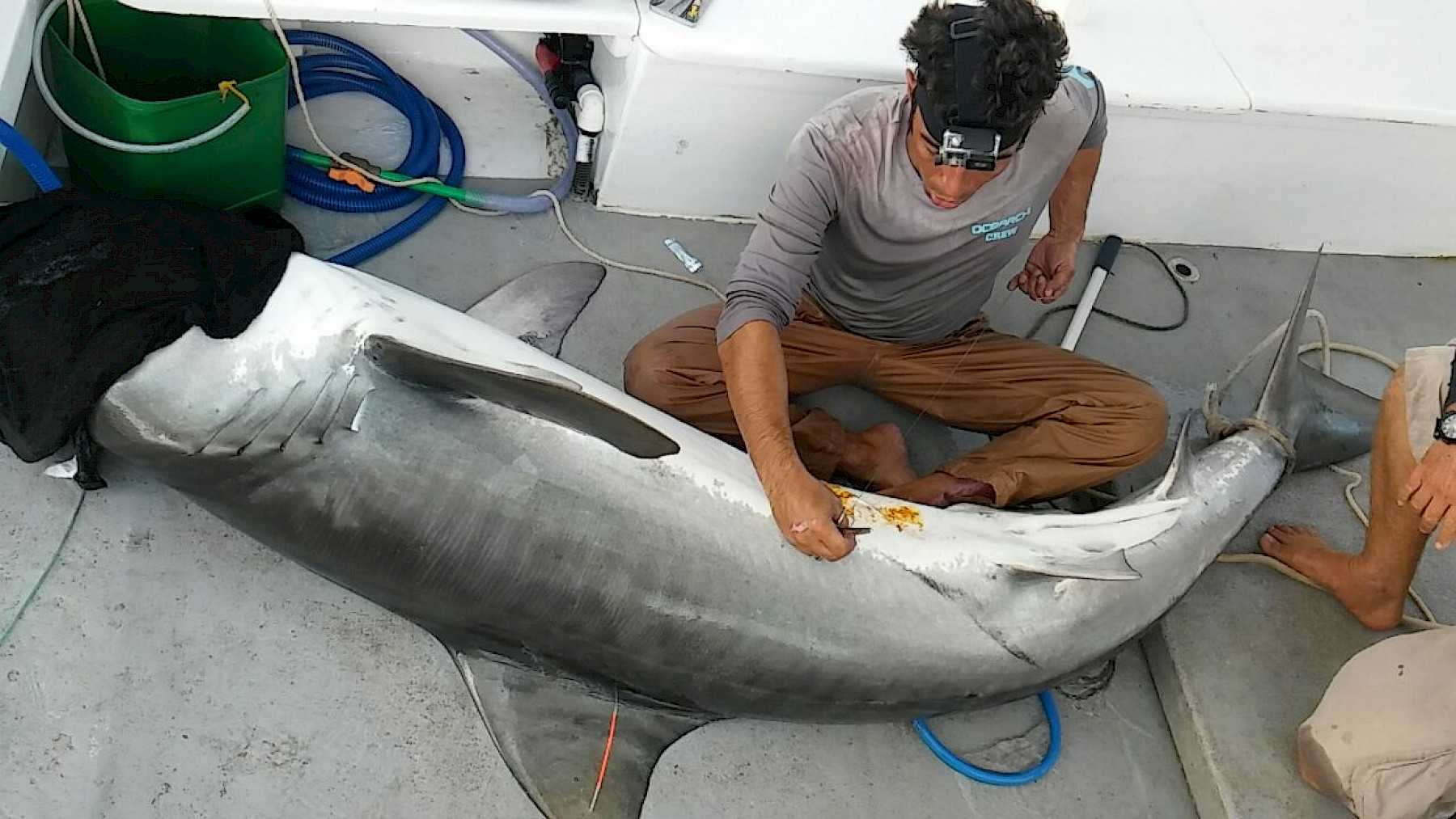UC research reveals how the absence of humans affects the way sharks behave
The study, conducted during the COVID-19 lockdown, found that lemon shark behaviour changed when the human element was removed.
A study conducted by André S. Afonso, a researcher at the Department of Life Sciences of the Faculty of Sciences and Technology of the University of Coimbra, concluded that the lemon shark species changed its behaviour during the COVID-19 lockdown when the human component was removed. Details of the research have been published in the journal Ocean & Coastal Management.
Although many sharks play a crucial role in balancing marine ecosystems, they have been facing severe population declines. Overfishing is undoubtedly the greatest threat to shark populations, but little is known about the impact of non-extractive human pressure.
The scientific article 'Humans influence shark behaviour: Evidence from the COVID-19 lockdown', analysed the effects of variations in human presence on shark behaviour in an insular marine reserve.
According to the author of the study, “In 2020, Fernando de Noronha (FEN) in Brazil was virtually devoid of humans during a 211-day pandemic-related lockdown. A local shark tracking programme provided nearly 280,000 acoustic detections in coastal waters from 2016 to 2021, showing that the lemon shark, native to the area studied, clearly reacted to the absence of human beings".
In fact, during the lockdown period, Lemon sharks began to spend more time in coastal areas and areas where human presence was less restricted. When people returned to the area, the species resumed its previous patterns.
According to the FCTUC researcher, this species is by nature more nocturnal. However, during confinement and in the absence of human presence during the day, these sharks began to move into areas most used by people before the pandemic lockdown. "These trends suggest that while daylight may be important for these animals, it is probably the human presence that makes them more inhibited," claims Afonso.
The DCV researcher adds, “This study demonstrates that non-extractive human disturbance can induce significant changes in the way marine predators explore crucial habitats for accomplishing trophic, reproductive, and ontogenetic functions. Ascertaining the ecological impacts of marine-based human development should thus consider cryptic responses by keystone megafauna to the anthropogenic landscape produced by an ever-growing coastal population. the single solution to endow shark populations with suitable habitats for optimizing their resilience to human pressure”.
The scientific article is available here.

